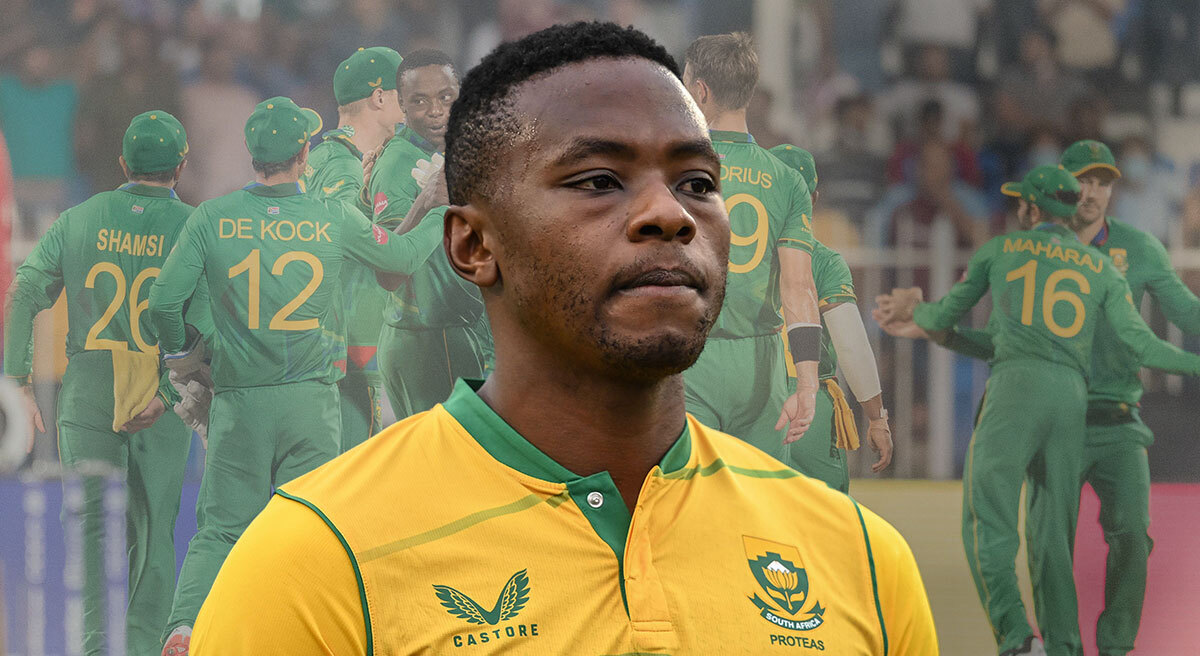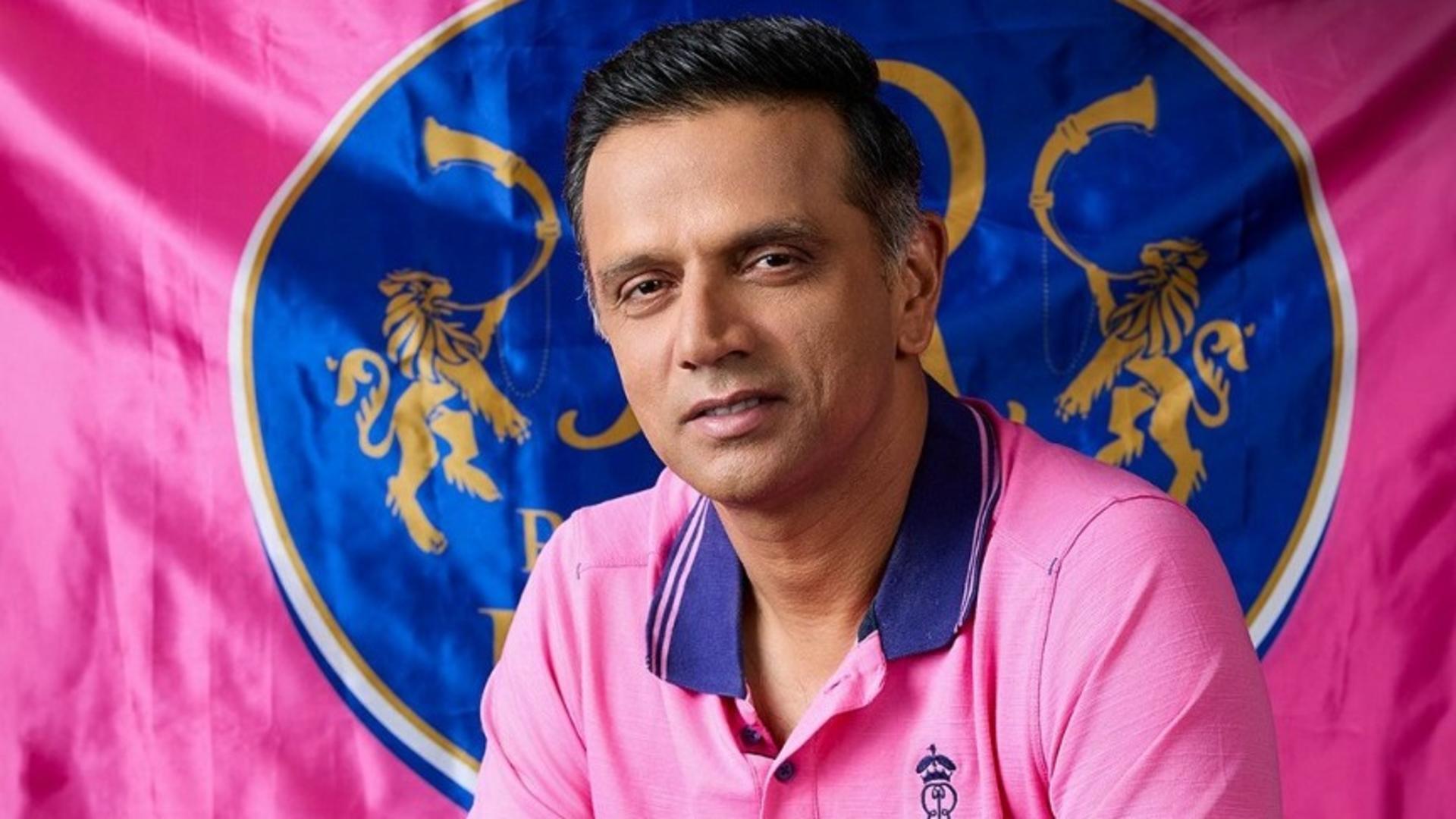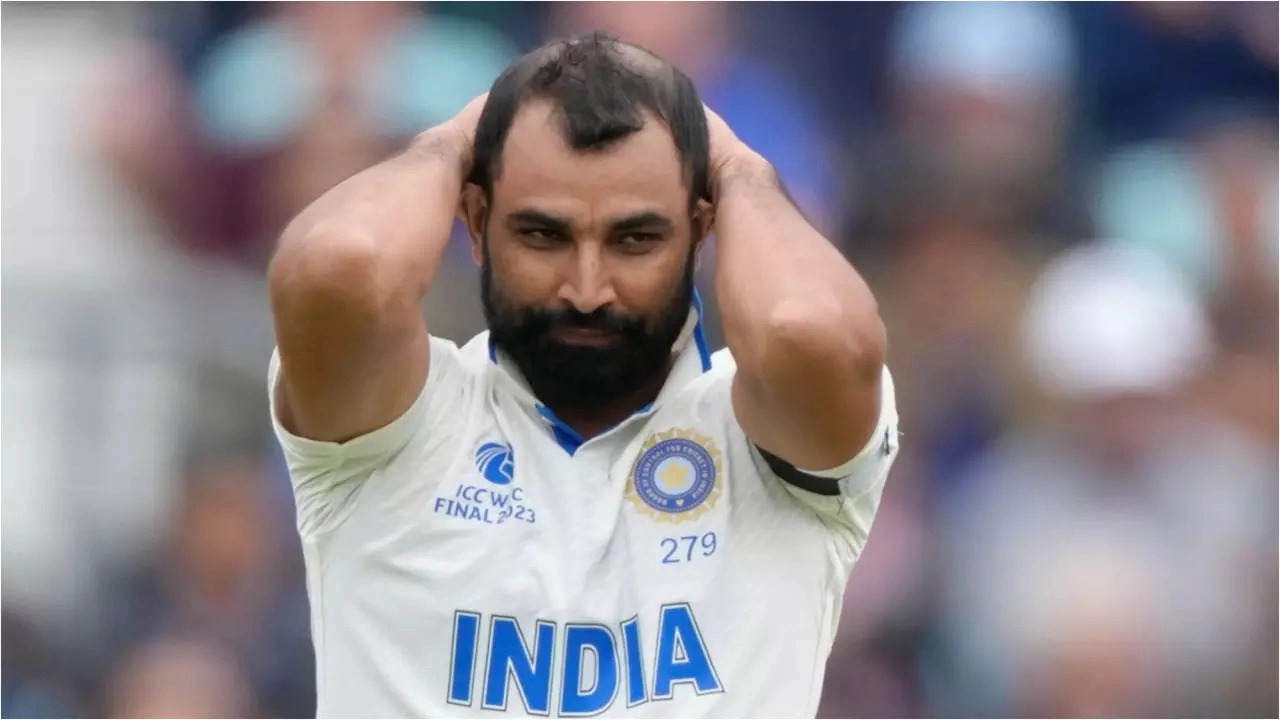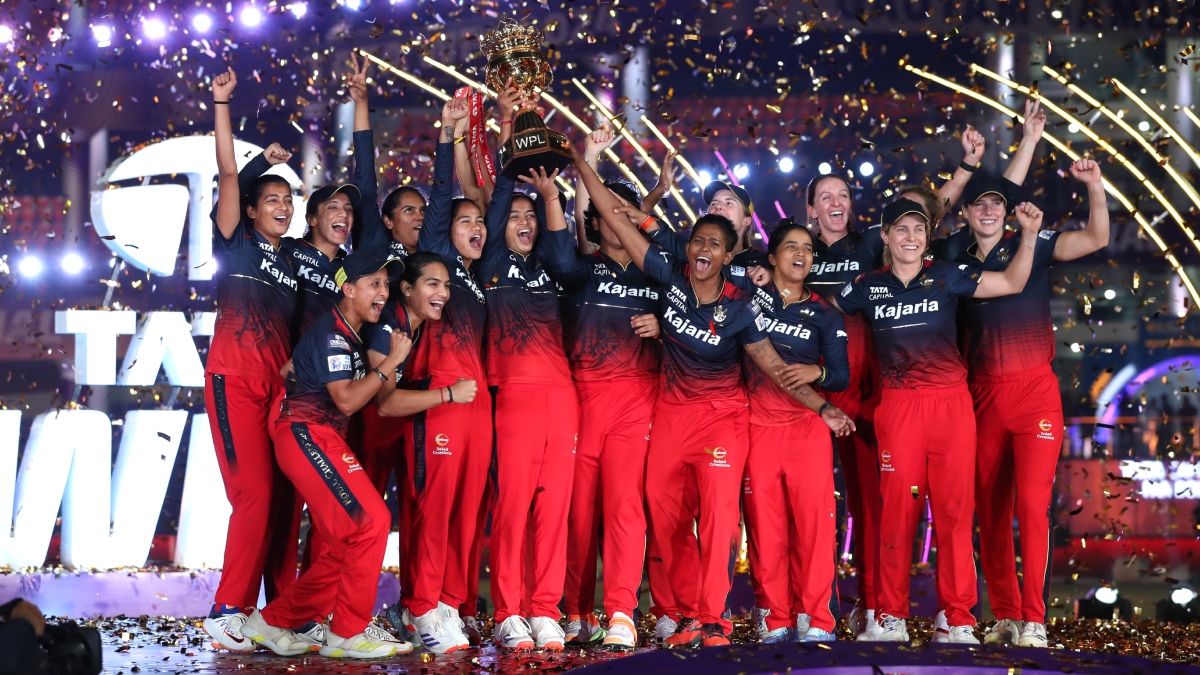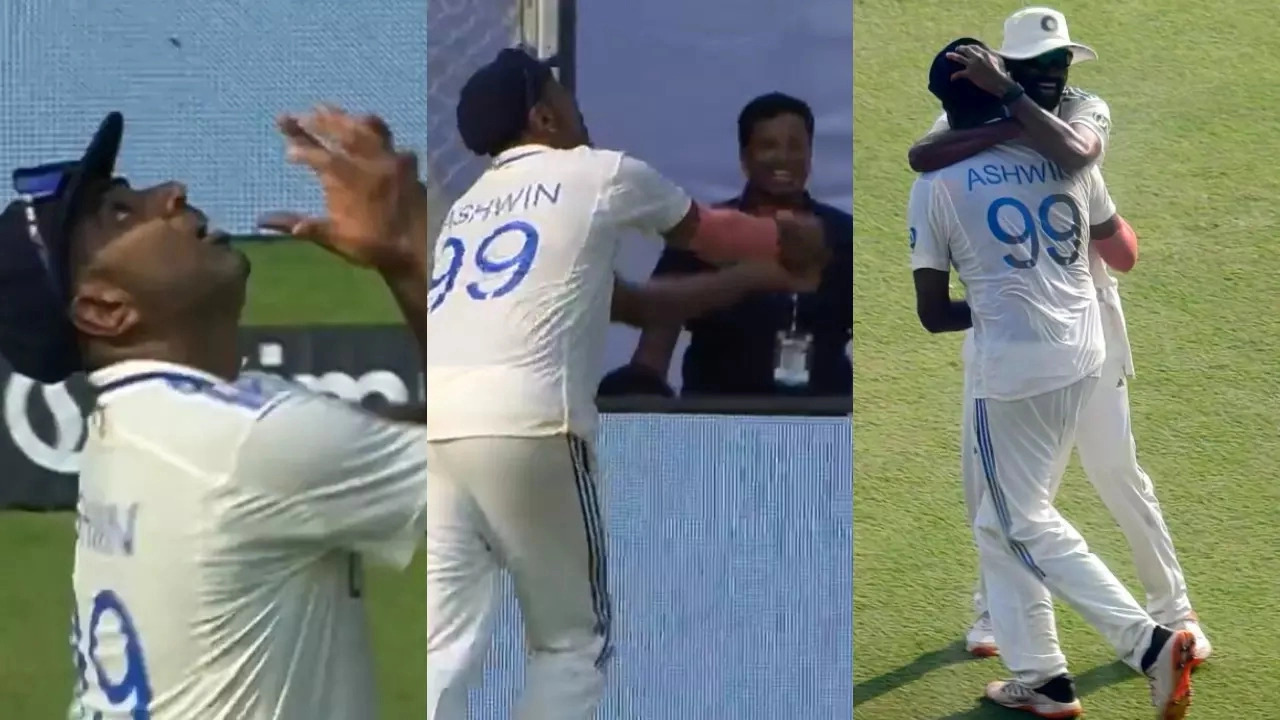Kagiso Rabada would have endured “torture” during the competition if he had continued to believe that he was the only player from Africa who was selected for South Africa’s T20 World Cup 2024 team. Carrying that weight, he claimed, “didn’t put any more pressure on me at all”. Rabada, on the other hand, accepted his position and promoted a wider conversation about transformation-related challenges.
Yes, I am a black player. It’s okay if I don’t think I should have been there based on my qualifications and if other people don’t feel the same way. I’m not unbeatable. Rabada spoke from Trinidad, where South Africa is getting ready for a two-Test series against the West Indies. “I can be dropped too, but I believe in myself,” he added.
Kagiso Rabada responded, “It didn’t put any more pressure on me at all,” when asked if he was aware of the attention being placed on the amount of players in the squad, particularly the black African contingent.
Imagine being the only black player on a team during the World Cup—that would be a big burden. I find that to be torturous. That simply detracts from concentration.”
If South Africa brought one thing to the competition, it was concentration. They had their most successful men’s World Cup, winning eight straight games to go to their first final. They narrowly lost to India, but their advancement was commended. But they also came under fire from a variety of political and administrative circles regarding the squad’s makeup, which was a hot topic of conversation at the most recent Diversity, Equity and Inclusion Indaba (DEI) conference organised by CSA.
In addition to acknowledging that its tactics have not produced enough black African players, namely for the national team, CSA has also pledged to address white-ball coach Rob Walter’s call for the domestic system to “up the ante” in preparation for the 2027 World Cup. However, the board also understands that in order to satisfy the sports ministry, the transformation numbers must remain at a certain level. As a result, the board had to respond to enquiries regarding the reason behind the inclusion of just one black African player in its T20 World Cup 2024 roster. Rabada is aware of his prominence, thus.
“You raise a legitimate concern, wondering how players in the past and future would have felt, and these are some of the challenges [we] encounter. And we must deal with these issues,” he remarked. “It was all about winning [the World Cup] for me. You never know how it feels for other players, though. Additionally, the athletes’ mentality or psyche may be seriously harmed by what the media says about the circumstance. South Africa has a very distinct geography, so there are some things we have to learn to live with. And for some reason, the entire transition thing always seems to come to the surface around World Cups.”
A brief overview of South Africa’s past: transformation targets have been in place since 1999, seven years after readmission, meaning that the need for change has been present for twenty-five years. Four players of colour, or any players who were not white, had to be included in every starting eleven for the national team at first, but after 2016, the goal has become less strict and more defined. The national men’s team now has to field, on average, six players of colour during a season, with at least two of those players having to be black Africans.
They may enter the T20 World Cup with just six players of colour and one black African in the squad, but they would still meet the quota at other points in the season because the aim is calculated as an average rather than a specific figure. This was the first South African World Cup team to only include six players of colour since 2016 and the first to only include one black African player since 2015.
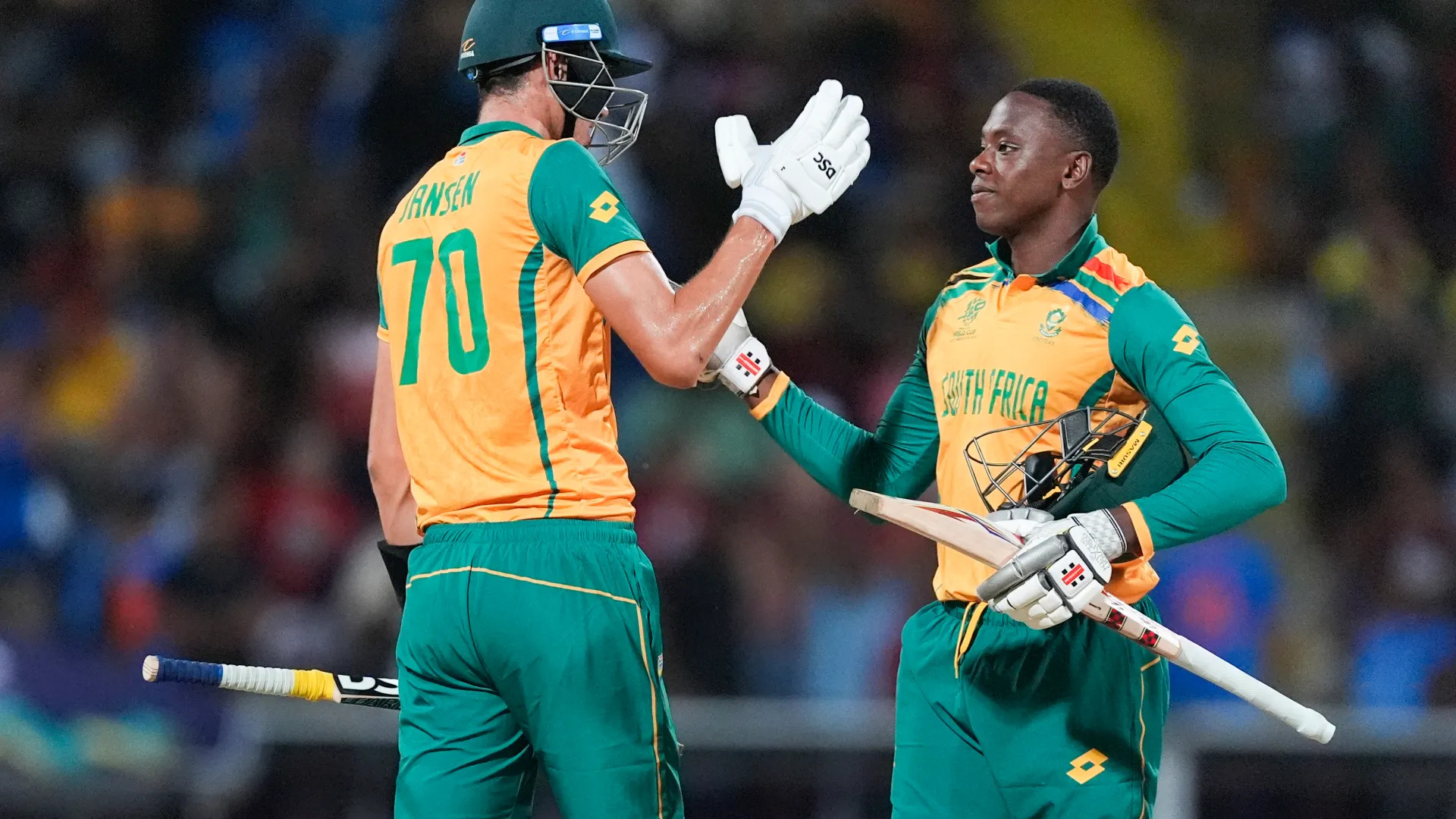 Actually, a reconsideration was brought about by the 2015 ODI World Cup, as Aaron Phangiso—the squad’s lone black African player—went the entire competition without making a play. The transformation strategy also interfered with selection during the 2015 World Cup when, the night before the semifinal, then-CEO Haroon Lorgat called coach Russell Domingo to remind him of the pledge to include four players of colour in each starting XI. For the match against New Zealand, Vernon Philander was then selected ahead of Kyle Abbott.
Actually, a reconsideration was brought about by the 2015 ODI World Cup, as Aaron Phangiso—the squad’s lone black African player—went the entire competition without making a play. The transformation strategy also interfered with selection during the 2015 World Cup when, the night before the semifinal, then-CEO Haroon Lorgat called coach Russell Domingo to remind him of the pledge to include four players of colour in each starting XI. For the match against New Zealand, Vernon Philander was then selected ahead of Kyle Abbott.
Only four players of colour and one black African, Rabada, were fielded by South Africa in any XI throughout this T20 World Cup. Even though it was never made clear that Rabada would be required to play every game, South Africa would not have had any black Africans on the team if they had faced a match without him. He finished behind Anrich Nortje as their second-highest wicket-taker.
Though he clarified that there can be situations where players of colour have reason to doubt themselves, Rabada’s inclusion in starting lineups is rarely contested as an all-time great in South Africa.
Consider the following: we lost because to transformation, we had to include players of colour, or black Africans were among the players who might make a player feel that way [that they are only included because of their colour]. And World Cups are where that always happens,” he remarked. It is less of a problem when we are winning series and performing well in other games, so that’s where it could be a little erratic. And if you question yourself honestly, have transformations prevented us from winning a World Cup in the past? You know, really, I mean, really? Thus, occasionally, things may be exaggerated.”
“It’s not a system that is particularly easy to just understand and move on from. It’s something that has to be looked at in context”
It is impossible to claim that South Africa’s defeat in 2015 was caused by transformation. The intervention with selection occurred in the semi-final, and it’s impossible to predict how they would have performed in a Melbourne final against Australia.
In contrast, South Africa selected Temba Bavuma, who was not doing well, as captain for the 2022 T20 World Cup. Nevertheless, their chances of winning the trophy were slim. After losing to Netherlands in one of their poorest World Cup performances, they were eliminated in the group stage.
Because South Africa has not lost a World Cup due to transformation, Rabada and CSA DEI Mudutambi Ravele, who questioned last week if the 2024 T20 World Cup side performed well “because they didn’t have black players,” are correct. Rabada, who is currently leading the way for black cricketers to excel, is aware that conversations regarding the appropriate ways to handle the issue of restitution are still needed.
“It’s a unique system and a lot of people have different opinions on it because of where our country comes from,” he stated. Furthermore, it’s not a method that is particularly simple to comprehend and get over. It’s something that requires a contextual examination.”
Additionally, he has the ability to distinguish such ideas from the notion of appreciating success in all its forms. When asked to react to South African swimmer Tatjana Smith’s gold medal in the 100-meter breaststroke at the Olympic Games in Paris, Rabada did not hesitate to both celebrate and point out their shared and unique characteristics.
Also Read: The challenges of being Kagiso Rabada
“She has been bringing us joy.” She is amazing and so motivating. As an athlete, seeing it motivates me to pull off the same accomplishment,” he remarked. Although I’m a black man and she’s a white swimmer, I think she’s done an incredible job as an athlete and someone who strives to be better and better all the time. And observers are present. And they’d like to follow suit. They simply wish to carry out the same tasks as these individuals, who represent us globally, regardless of the field they work in.”









 Win Projections to be updated soon
Win Projections to be updated soon








